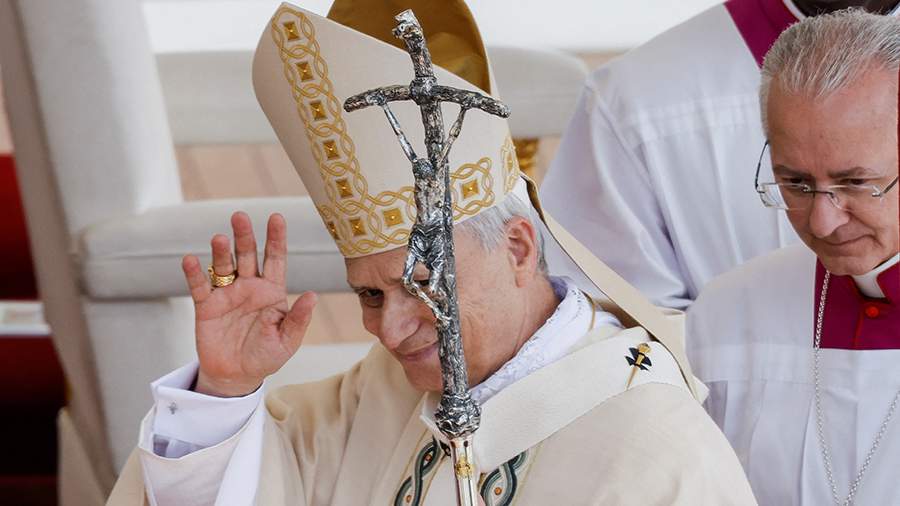What awaits the Vatican under the new Pope? Analysis

On May 18, the enthronement of Pope Leo XIV took place in St. Peter's Square. Robert Francis Prevost became the 267th Pope of Rome. At the same time, he is the first head of the Roman Catholic Church from the USA. What changes are expected from him is in the Izvestia article.
The coming to power of an American
Robert Prevost was born in Chicago and has been interested in religion since childhood. According to his older brother, who served as a Marine, the boy liked to play priest, and his relatives teased him about the pope.
• The election of Leo XIV came as a surprise to many, because he was not on the list of favorites. The voting of the conclave traditionally took place behind closed doors and lasted more than a day. It was possible to choose the pope on the fourth attempt. Probably, the new pontiff has become a compromise figure for the conservative and progressive circles of the Catholic Church.
• There were rumors that due to disputes within the Vatican, a temporary cardinal would be chosen, that is, an elderly cardinal who would take the throne for a short time. However, the new pope is 69 years old. This is a fairly young age for the head of the Catholic Church. His pontificate may last several decades.
During his life, Leo XIV served in both Peru and Italy. Therefore, his election partially satisfied the conservative circles of the Catholic Church, who wanted to see a person connected with Italy on the Holy see.
• At the same time, the new pope does not have a perfect biography. The American Association of Survivors of Violence by Priests has filed a complaint against Robert Prevost and five other cardinals on charges of covering up cases of child abuse in 2000. Prevost allowed Priest James Ray, whose ministry was limited due to allegations of child abuse, to settle at St. John Stone Monastery in Chicago, located next to a Catholic elementary school. Robert Prevost denied all charges.
Relations with North and Latin America
Leo XIV spent most of his life outside the United States. However, he understands Americans and is able to address them, and this is extremely important during the controversial rule of US President Donald Trump. The stumbling block may be the aggressive migration policy of the head of the White House, which contradicts the position of the Vatican. Back in 2018, during Trump's first presidential term, Leo XIV (then Bishop Prevost) criticized the law that separated illegal migrants from their children.
• In February 2025, the disapproval of the future pontiff was caused by the Vice President of the United States, J. D. Vance. The American politician, explaining Washington's harsh migration policy, referred to Christian laws, according to which one must first love one's family, and therefore the rest of the world. However, Leo XIV noted that Jesus Christ does not ask people to rank their love.
Leo XIV was the head of the Pontifical Commission for Latin American Affairs. This region is now home to the largest number of Catholics. The new pope understands the problems and concerns of local residents, so he can further strengthen the Vatican's influence in this key region. The pontiff's soft stance on the migration issue also adds points to him in Latin America.
The search for compromises
Leo XIV received the status of cardinal from Pope Francis, but he holds more moderate views. Thus, he shares the views that it is necessary to support the poor and migrants, but does not support the most liberal ideas of the previous pontiff, for example, about indulgences for LGBT members (the movement is recognized as extremist and banned in Russia). In particular, Leo XIV noted that Francis' encyclical, in which he allowed the blessing of same-sex couples, is unlikely to work, for example, in African countries.
• Leo XIV did not support one of Francis' most important reforms to include women in the college, which votes for bishops nominated for approval by the pope. In his opinion, this could create new problems for the church. Despite some differences with Francis' views, Leo XIV is likely to continue the line of the former pontiff in order not to quarrel with the liberal circles of the church.
• The new pope explained the choice of his name by saying that he wanted to pay tribute to Leo XIII, who lived during the era of the industrial revolution at the turn of the 19th and 20th centuries. He noted that the world is also going through difficult times now, so it is necessary to learn how to negotiate again. In his first speech, Leo XIV called on all believers to build bridges of dialogue to achieve peace.
The new Pope combines doctrinal rigor, pastoral compassion, and a missionary vision of the gospel. Since he has probably become a compromise option for various circles of the church, he is not expected to take any drastic steps on key issues for the Vatican.
When writing the material, Izvestia talked and took into account the opinions of:
- Dmitry Levy, Candidate of Political Sciences, Associate Professor of the Department of European Studies at St. Petersburg State University;
- historian and religious scholar Nikolai Sapelkin;
- Alexei Yudin, the Vatican historian;
- political scientist and religious scholar Alexander Stenko.
Переведено сервисом «Яндекс Переводчик»

